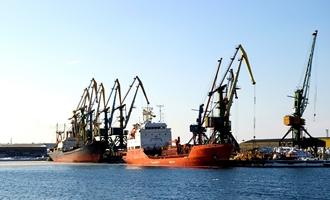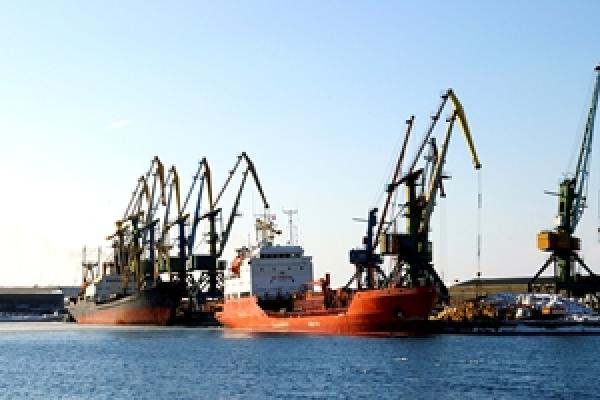
Danielle Southey
Published: July 01, 2015

The financial collapse of the Danish OW Bunker group has been extensively reported. OW Bunker A/S, O.W. Bunker & Trading A/S and O.W. Supply & Trading A/S filed for bankruptcy on 7 November 2014 with a number of other group companies having since followed suit. The OW Bunker group (“OW”) had been one of the world’s largest bunker suppliers, with a reported 7% share of the world’s marine fuel supply market, and the repercussions of its collapse were soon felt throughout the industry. The following is intended as a recap of the issues that have given members particular concern and a précis of the approaches taken.
As these cases evolve and the outcomes become known, we shall endeavour to keep Members updated of key developments.
Who to pay?
Whilst OW was the physical supplier of bunkers in some cases, in others, its role was as contractual supplier, sub-contracting the physical supply of bunkers to a third party. It has been these cases that have led to the bulk of disputes.
A common question in the weeks that followed the collapse of OW was whether Members should settle OW’s invoices that were due, or would soon become due, if they had received a demand for payment for the same bunkers from the physical supplier. Even where competing payment demands had not been received, members were wary of making payments to OW in the knowledge that funds may be retained by liquidators and not passed on to the physical supplier.
Members’ fears were that, in the event of non-payment from OW, physical suppliers would look to vessel interests for payment; the alternative of joining a list of OW’s creditors, being far less attractive.
Whether supply terms give the physical supplier any direct rights as against the vessel will of course depend on the terms. In some cases, the terms that Members have agreed with OW have permitted a variation so that those terms will match the terms agreed between OW and the physical supplier. Although this should not, under English law, mean that the Member has contracted with the physical supplier, the position in local jurisdictions may vary and if the physical supplier’s contract with OW gives rise to a lien for overdue payments, that supplier could look to assert this right against the vessel. Typical supply terms permit a supplier to retain title in the bunkers until payment is made and the physical supplier might also argue for re-possession.
Irrespective of whether a physical supplier has a direct contractual relationship with a Member, there may be scope for them to exercise a maritime lien (as opposed to a contractual lien); a particular maritime claim which is made against the vessel. Whilst there are limited situations in which a maritime lien can be exercised under English law, other jurisdictions are less restrictive. As a prime example, US law offers suppliers of ‘necessaries’, which has been held to include bunkers, the right to exercise a maritime lien over the ship for payment. This is permitted when the necessaries were supplied on the authority of a person authorised by the Owner and there is a presumption that this will include Charterers and/or their agents. Such liens survive a sale of the ship.
On the other hand, if members were to make payment to the physical suppliers, this would not extinguish a claim from OW who Members are contractually obliged to pay. OW’s representatives in liquidation have certain duties to perform including recovering sums due to OW. OW’s standard terms of supply provide that title in the bunkers would not pass to the buyer until such time as they had been paid for. In the event of non-payment, therefore, OW and/or their liquidators or assignees, could also be in a position to enforce a lien over the vessel and to arrest it to obtain security or to reclaim possession of the bunkers. An added complication has been the existence of an apparent assignment featured on a number of OW’s invoices, purporting to assign OW’s rights under the invoice to a bank, the largest secured creditor of OW. This caused further concern that non-payment as per OW’s invoice would give rise to a claim or threats of arrest from that bank.
In short, the dilemma facing many was whether to withhold payment from both parties and risk arrest, or make payment to one party, either OW or the physical supplier, and risk being held liable (or be arrested) for the same payment by the other party.
Charterparty disputes
Most time charters provide that ownership of bunkers will pass to Charterers on delivery of the vessel with a payment made with the first hire instalment in respect of those bunkers. Bunkers taken on during the charter period will also become the property of Charterers. Owners’ interest is merely as bailee, in that they have physical possession of the bunkers but they do not have title. On redelivery ownership of bunkers generally passes back to Owners. This is the case under NYPE, BALTIME and SHELLTIME 4 forms, for example.
However, any claim against bunkers will be of concern to an Owner; the vessel may be perceived as the primary target and in some cases will be more attractive than looking to assert a claim against Charterers who may or may not have any assets.
So what if an Owner settles or secures a claim because of an arrest; will they be able to recover this from Charterers? As always, parties will need to study the relevant provisions but we suspect there will be cases where owners will succeed in recovering such sums. For example, clause 18 of the NYPE 1946 provides that:
“…Charterers will not suffer, nor permit to be continued, any lien or encumbrance incurred by them or their agents, which might have priority over the title and interest of the owners in the vessel.”
Where Charterers have not paid for bunkers at all, it is not difficult to see how Charterers will have fallen foul of this provision and will be liable for damages to owners.
Under English law, this provision has also been held to mean that Charterers should provide security to obtain the release of a vessel if the ship is arrested for a lien by Charterers’ agents and so Owners might press for charterers to settle or secure the claim in the first instance.
This situation becomes yet more complicated if Charterers had paid OW for the bunkers but the physical supplier arrests the vessel having not received payment from OW. In such a case it seems Charterers will have more arguments open to them to challenge a liability to Owners.
A further issue ripe for dispute is whether an arrest for bunkers will automatically render a vessel off hire. Parties will need to look to their off hire clauses but it is not difficult to envisage an Owner asserting that the vessel remains on hire if an arrest has arisen by virtue of Charterers’ agents, the bunker supplier. Furthermore, it seems likely bunker suppliers would be considered Charterers’ where Charterers are contractually obliged to provide and pay for bunkers.
It is against this backdrop of uncertainty that the issue of payment for OW bunkers is considered.
Few would argue with the principle that a buyer of bunkers should only have to pay once. However, achieving this has proved difficult. It can be very difficult for an Owner to ignore the potential for an arrest when there are invoices overdue. Procedural hurdles and the complex dynamics between maritime and bankruptcy legal regimes are but a few of the issues to overcome in deciding how best to proceed.
Some have found a degree of comfort in making payments into court under an ‘interpleader’ order. An interpleader is an action allowing a party to commence proceedings compelling other parties to litigate a dispute. This exists in a number of jurisdictions and as a result of the OW collapse, the Club has been involved in obtaining a number of such orders, including in the US and the English High Court. This has allowed Members to pay disputed sums into court pending determination as to who should receive funds.
Choosing the jurisdiction in which to interplead in has caused debate in itself. Each case will turn on the facts but consideration has been given to the vessel’s trading routes, the law and jurisdiction provided for in the supply contracts, the location of an unpaid party, and of course, the prospects of success in any particular jurisdiction.
By way of example, Rule 86 of the Civil Procedure Rules governing English Court civil procedures, provides a mechanism for making payments into court when it is subject to competing demands. In theory, this can be used to demonstrate the claim is effectively secured so that there is no basis for an arrest.
Orders have been granted even in cases where the underlying contract provides for arbitration rather than High Court dispute resolution, although there is nothing to suggest that a party could not commence parallel arbitration proceedings.
In the absence of an appeal by the parties named, the interpleading party can apply for a hearing to seek a determination of where funds should be paid. We await the outcome of such hearings with great interest.
Similarly, we are also aware of a number of cases having been filed at the Federal Court in New York’s Southern District in respect of OW. Bunker suppliers will often seek to arrest in the US because of the law relating to maritime liens, touched upon above, and so there has been a clear appeal to Owners of vessels trading to the US to obtain an order there. Orders have also been granted where there is only a possibility of the vessel calling at the US – suggesting there need not be an immediate threat of arrest. Again, applications have been successful with express provisions for payments into court and restraints against arrest.
As matters stand, the US actions await determination on whether they should be moved from New York to Connecticut, the place of OW’s US headquarters and where the bankruptcy is proceeding; it seems these actions will not enjoy a swift resolution.
We are not currently aware of any remedy available which offers a cast iron guarantee against a party commencing a claim or seeking an arrest of a vessel in another jurisdiction. Furthermore, there is no certainty that the court in another jurisdiction will recognise an interpleader order that has been granted.
So there remains a risk that having paid funds into a court pursuant to an interpleader action; a Member will then have to deposit funds in another jurisdiction as security against an arrest. We must rely on judicial co-operation. It is hoped that a court being asked to arrest will give credence to an interpleader order and seeing that funds have been deposited, refrain from granting an arrest.
There has been some discussion of caveats against arrest in conjunction with interpleader orders and, whilst there may be value in this if there is concern in a particular jurisdiction, many jurisdictions would require security or a deposit, negating the very purpose.
In the meantime, OW and its affiliates have obtained warrants of arrest against vessels allegedly having unpaid bunker invoices pending. Many expect this approach to continue. We are not aware of any such orders being granted in cases where interpleader orders exist.
It will therefore be interesting to observe how these cases develop and we shall continue to update members of key developments.


